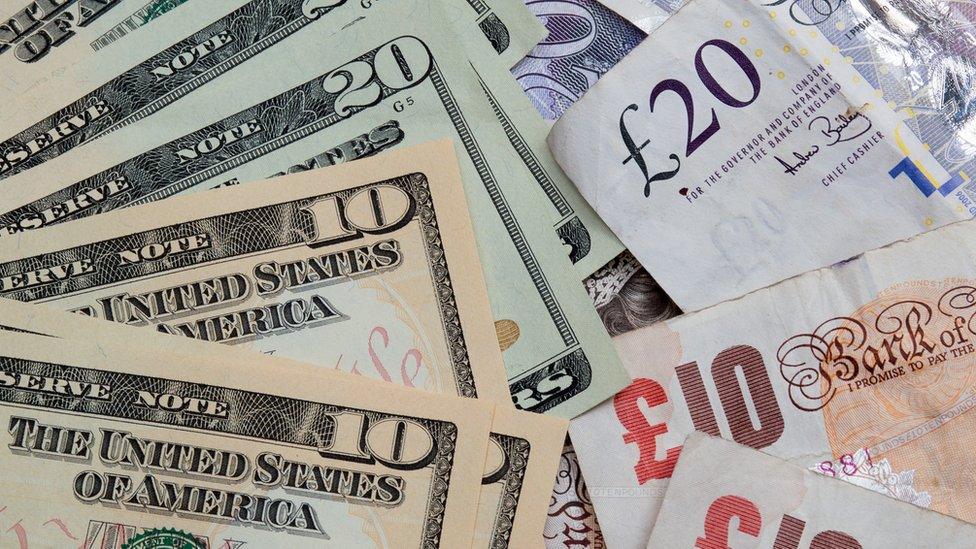Could weaker pound cost the NHS?
- Published
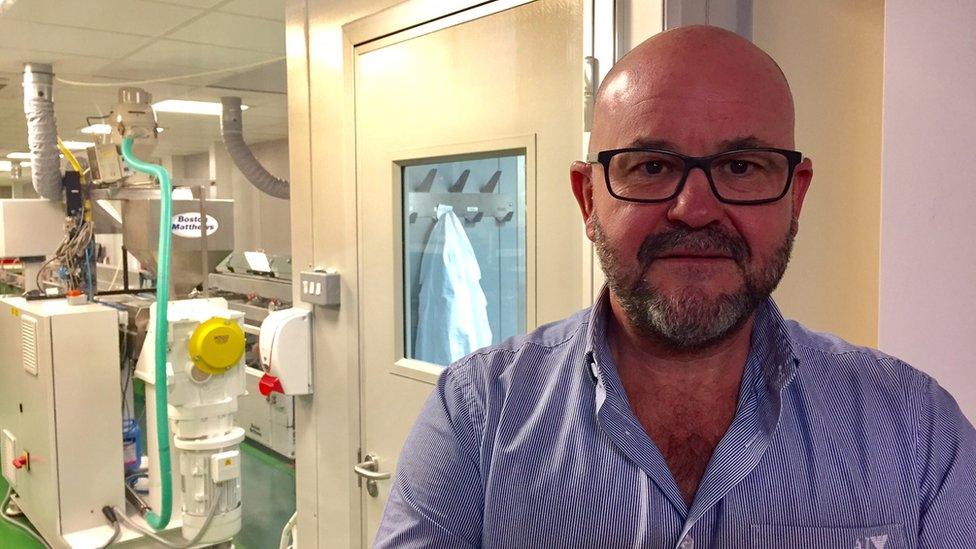
Simon Talbot, of P3 Medical, says the falling pound is increasing his costs
At P3 Medical in Bristol they take cleanliness very seriously. At the entrance to one of the hospital equipment supplier's clean manufacturing rooms, a low barrier indicates the point beyond which I and my dirt and germs may not pass.
There is an airlock system and busy staff put on special shoes, pale blue smocks and hats before scrubbing their hands and entering the factory floor. The air smells of chemicals and disinfectant.
Later, in his office, managing director Simon Talbot tells me they make "widgets" for operating theatres: from barrier materials to protect against contamination, to a salmon pink wormy-looking device which helps patients with lung problems breathe under anaesthetic.
As the pound has fallen, Simon has seen the cost of imported raw materials and finished goods increase. He says the increase is so great that he needs to pass some of those costs on to the NHS.
Affordability fears
Before the EU referendum, the chief executive of NHS England, Simon Stevens, told the BBC that because many imported drugs were priced in euros and dollars, a fall in the pound could make it "more difficult to get the treatments that we need at an affordable price".
Months on, the pound has fallen. It is one of the principle reasons the Bank of England, this month, increased its inflation forecast for 2017.
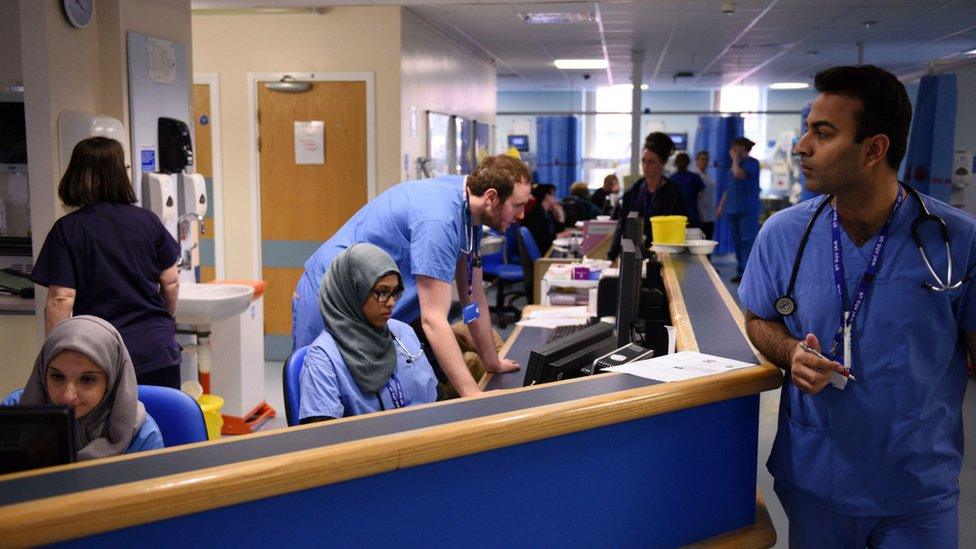
The NHS has the advantage of being the biggest buyer around
NHS England would not tell me whether Mr Stevens still believed his prediction. The NHS in Scotland thought that only a "small percentage" of contracts would be effected by currency movements.
But drugs are only one, complex, area of NHS purchasing. Jonathan Edwards, a regional procurement manager who helps a group of seven acute NHS Trusts with their purchasing, points out there are many other goods sourced from overseas.
"The examination gloves are from Malaysia, the sutures are maybe from Italy, the orthopaedic hips may be from Ireland," he says.
Worst case scenario
Paul Briddock, policy director of the Health Care Financial Management Association, the professional association for NHS financial staff, tells me he expects there to be a cost to the NHS caused by the increasing costs of imports and imported raw materials.
He says that there will have to be "efficiencies one way or another", including savings in other areas or even scaling back on provision to cover the impact. But he would not put a number on the cost to the NHS. It is a complicated calculation.
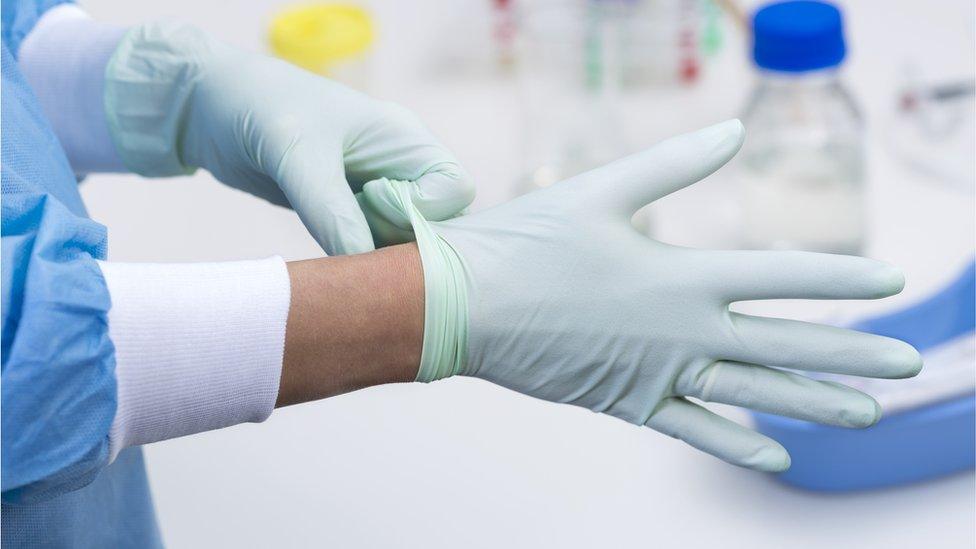
High volume, low margin items like surgical gloves could especially feel the squeeze
In the Health Service Journal, external in July, management consultant Chris Robson, who works with NHS trusts on purchasing, predicted the cost could be up to £900m.
When we talk this month, he says things have not changed much, around a billion pounds per year, he says.
But he is keen to stress that is a "worst case scenario" and highly dependent on long-term currency movements.
He hopes the actual figure will not be anything near that and he says much can be done to avoid this cost; there are large savings and efficiencies to be made - but there might also be quite a lot of "running to stay still".
Market power
Indeed senior procurement figures I spoke to via their professional association were keen to point out to me that substantial savings had already been made in NHS procurement. They expected those savings to continue even with the pound falling.
That was procurement manager Jonathan Edwards' view - but he also felt that the fall of the pound could reduce potential savings, particularly for low profit margin, high volume goods where there was strong competition.
The NHS has many ways of limiting the effect. The prices of some products are subject to agreements that are only reviewed periodically - that is the case with branded or on-patent drugs.
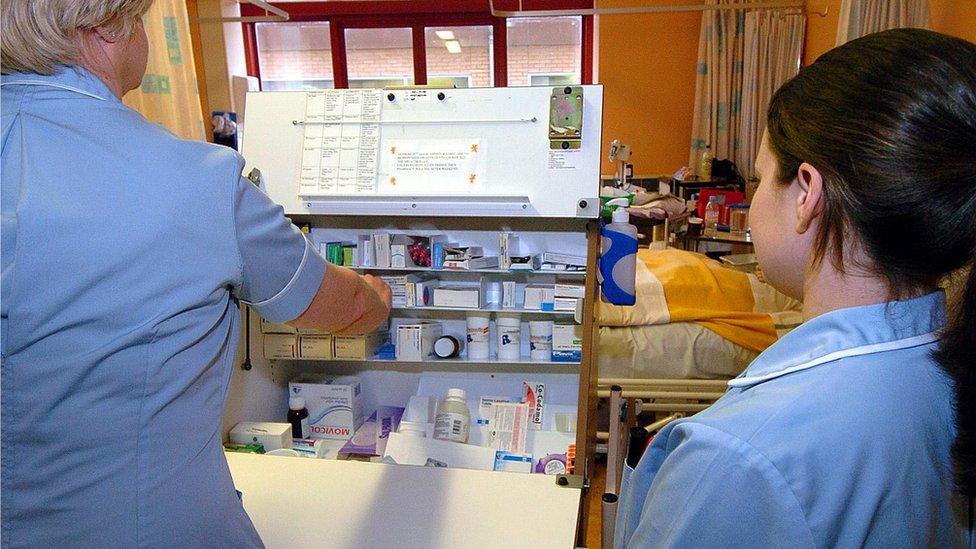
Generic drugs manufacturers are also worried about the impact of the lower pound
Other products will be subject to lengthy contracts with fixed prices.
The NHS also has tremendous market power - if it will not budge on price, there may not be many other places where a supplier can sell.
The Department of Health says it will "make sure suppliers keep to the prices set out in contracts". That passes the financial pain on to supply firms, even those based in the UK.
At P3 Medical, Mr Talbot tells me he imports many of his raw materials, as well as some finished products. He says their increasing costs has consumed a "fairly big chunk" of the company's income.
If the NHS does not allow him to reflect this in his prices, he may have to reluctantly reconsider accepting some health service business.
His trade body, the Association of British Healthcare Industries, of which he is a board member, says his experience is shared by many other firms.
Export opportunity
Of course, the falling pound is an opportunity to export. He hopes to grow that business, but it will take time and in the meantime he would like some flexibility in pricing to tide him over.
It was a similar story from the British Generic Manufacturers Association, which represents UK producers of off-patent drugs.
Director Warwick Smith told the BBC in a statement that some suppliers in the hospital market may have "no alternative but to seek to extricate themselves from those contracts where it has become uneconomic to supply".
The Department of Health said: "Currency rates constantly fluctuate, and this is one of many commercial risks we would expect suppliers to manage."
Their response suggested little tolerance for price increase and the BBC understands the view in the department is that the NHS was not offered discounts when the currency moved in suppliers' favour.
- Published11 October 2016
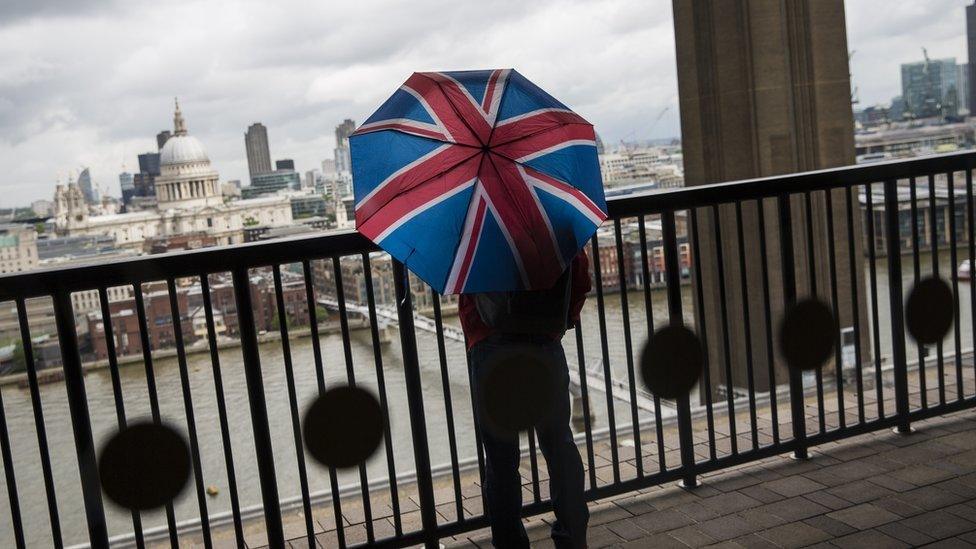
- Published18 November 2016
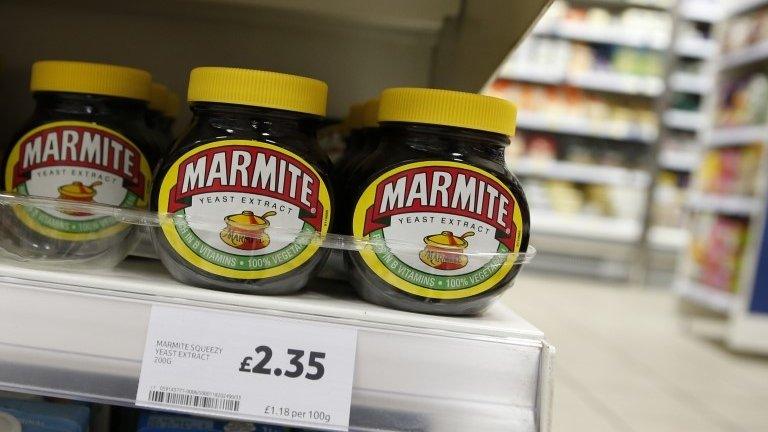
- Published11 November 2016
